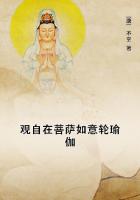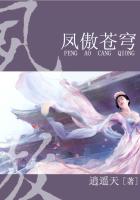We can hardly say that Plato was aware of the truth, that 'languages are not made, but grow.' But still, when he says that 'the legislator made language with the dialectician standing on his right hand,' we need not infer from this that he conceived words, like coins, to be issued from the mint of the State. The creator of laws and of social life is naturally regarded as the creator of language, according to Hellenic notions, and the philosopher is his natural advisor. We are not to suppose that the legislator is performing any extraordinary function; he is merely the Eponymus of the State, who prescribes rules for the dialectician and for all other artists. According to a truly Platonic mode of approaching the subject, language, like virtue in the Republic, is examined by the analogy of the arts. Words are works of art which may be equally made in different materials, and are well made when they have a meaning. Of the process which he thus describes, Plato had probably no very definite notion. But he means to express generally that language is the product of intelligence, and that languages belong to States and not to individuals.
A better conception of language could not have been formed in Plato's age, than that which he attributes to Socrates. Yet many persons have thought that the mind of Plato is more truly seen in the vague realism of Cratylus.
This misconception has probably arisen from two causes: first, the desire to bring Plato's theory of language into accordance with the received doctrine of the Platonic ideas; secondly, the impression created by Socrates himself, that he is not in earnest, and is only indulging the fancy of the hour.
1. We shall have occasion to show more at length, in the Introduction to future dialogues, that the so-called Platonic ideas are only a semi-mythical form, in which he attempts to realize abstractions, and that they are replaced in his later writings by a rational theory of psychology.
(See introductions to the Meno and the Sophist.) And in the Cratylus he gives a general account of the nature and origin of language, in which Adam Smith, Rousseau, and other writers of the last century, would have substantially agreed. At the end of the dialogue, he speaks as in the Symposium and Republic of absolute beauty and good; but he never supposed that they were capable of being embodied in words. Of the names of the ideas, he would have said, as he says of the names of the Gods, that we know nothing. Even the realism of Cratylus is not based upon the ideas of Plato, but upon the flux of Heracleitus. Here, as in the Sophist and Politicus, Plato expressly draws attention to the want of agreement in words and things. Hence we are led to infer, that the view of Socrates is not the less Plato's own, because not based upon the ideas; 2nd, that Plato's theory of language is not inconsistent with the rest of his philosophy.
2. We do not deny that Socrates is partly in jest and partly in earnest.
He is discoursing in a high-flown vein, which may be compared to the 'dithyrambics of the Phaedrus.' They are mysteries of which he is speaking, and he professes a kind of ludicrous fear of his imaginary wisdom. When he is arguing out of Homer, about the names of Hector's son, or when he describes himself as inspired or maddened by Euthyphro, with whom he has been sitting from the early dawn (compare Phaedrus and Lysias;
Phaedr.) and expresses his intention of yielding to the illusion to-day, and to-morrow he will go to a priest and be purified, we easily see that his words are not to be taken seriously. In this part of the dialogue his dread of committing impiety, the pretended derivation of his wisdom from another, the extravagance of some of his etymologies, and, in general, the manner in which the fun, fast and furious, vires acquirit eundo, remind us strongly of the Phaedrus. The jest is a long one, extending over more than half the dialogue. But then, we remember that the Euthydemus is a still longer jest, in which the irony is preserved to the very end. There he is parodying the ingenious follies of early logic; in the Cratylus he is ridiculing the fancies of a new school of sophists and grammarians. The fallacies of the Euthydemus are still retained at the end of our logic books; and the etymologies of the Cratylus have also found their way into later writers. Some of these are not much worse than the conjectures of Hemsterhuis, and other critics of the last century; but this does not prove that they are serious. For Plato is in advance of his age in his conception of language, as much as he is in his conception of mythology.
(Compare Phaedrus.)
When the fervour of his etymological enthusiasm has abated, Socrates ends, as he has begun, with a rational explanation of language. Still he preserves his 'know nothing' disguise, and himself declares his first notions about names to be reckless and ridiculous. Having explained compound words by resolving them into their original elements, he now proceeds to analyse simple words into the letters of which they are composed. The Socrates who 'knows nothing,' here passes into the teacher, the dialectician, the arranger of species. There is nothing in this part of the dialogue which is either weak or extravagant. Plato is a supporter of the Onomatopoetic theory of language; that is to say, he supposes words to be formed by the imitation of ideas in sounds; he also recognises the effect of time, the influence of foreign languages, the desire of euphony, to be formative principles; and he admits a certain element of chance. But he gives no imitation in all this that he is preparing the way for the construction of an ideal language. Or that he has any Eleatic speculation to oppose to the Heracleiteanism of Cratylus.















